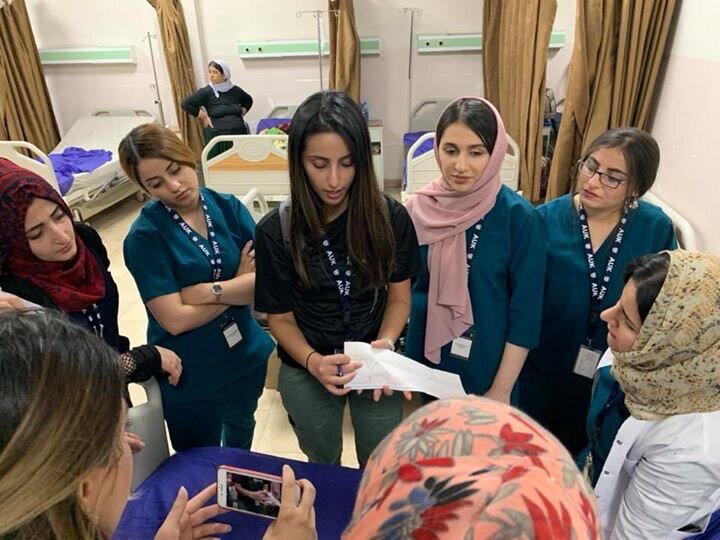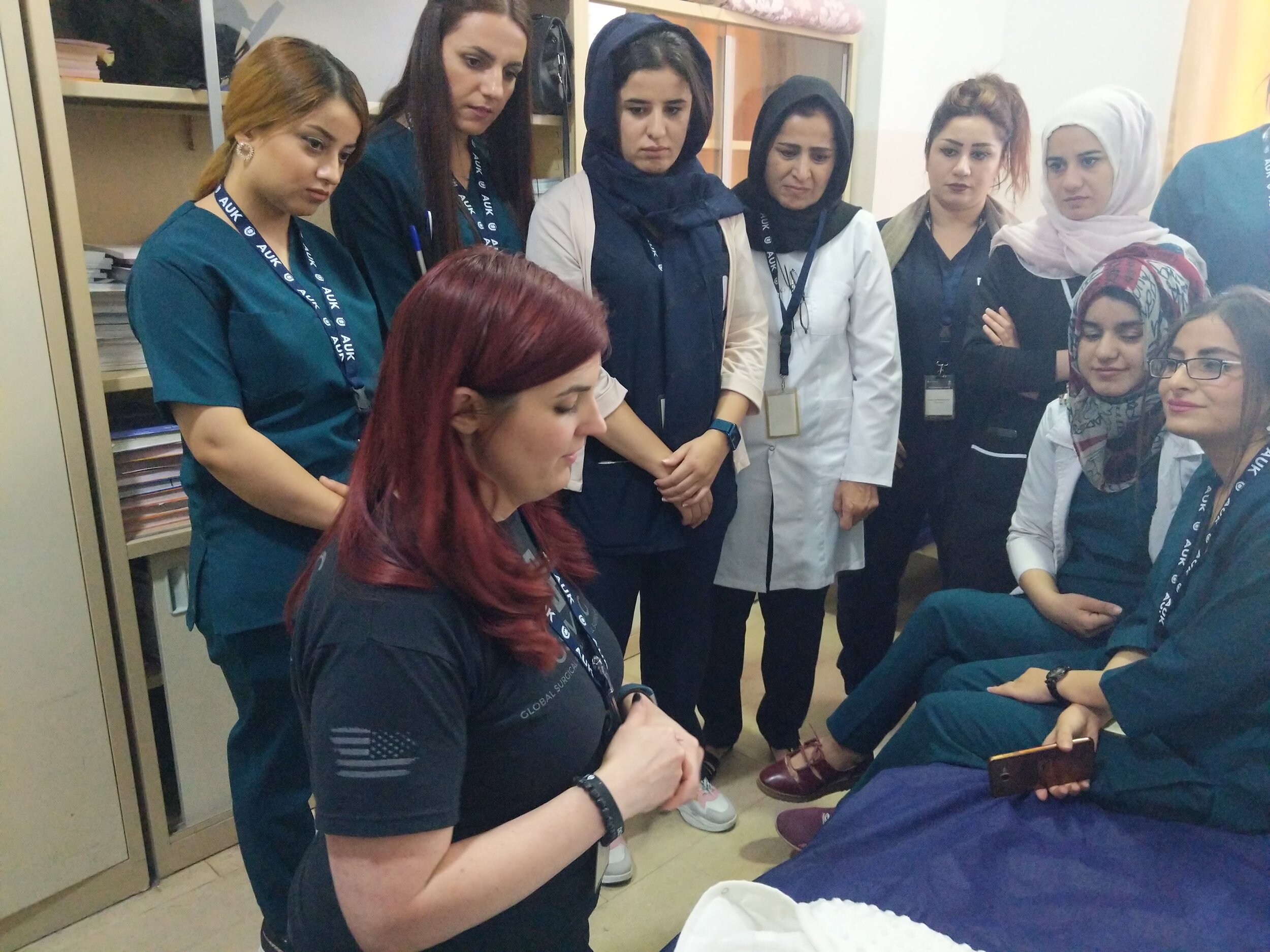




Gsmsg surgical teams
Gsmsg surgical teams
gsmsg surgical teams
Broad Coverage -
GSMSG surgical teams cover every surgical subspecialty including Trauma/Critical Care, Orthopedics, Neuro, Vascular, Cardiac, Thoracic, as well as Interventional Radiologists and many others.
Highest Quality -
The GSMSG surgical specialists themselves come from leading institutions such as Johns Hopkins, the Mayo Clinic, Harvard, Stanford, Yale, Georgetown, the University of Miami and bring that training and experience to populations in need.
Training of local surgeons -
GSMSG teams develop critical skills of local surgeons through hands on experiential training working directly with GSMSG surgeons in the OR. GSMSG surgeons also give lectures and semiars in-country to partner physicians while on our deployments.
GSMSG Cardiothoracic surgeons instructing local surgeons in Iraq
GSMSG Diagnostic experts training local medical staff in Iraq
GSMSG offers full-spectrum medical instruction from basic field combat casualty care to cardiothoracic or neuro surgeries.
GSMSG Combat Trauma Specialists teaching field intubation techniques to field medics
GSMSG cardiac surgeons instructing local surgeons on open-heart surgery techniques
GSMSG personnel offer an unmatched quality to communities in conflict areas. An example of some institutions that GSMSG surgical team members have either worked for or trained at include:
Georgetown University School of Medicine
Cornell University Medical College
Vanderbilt University Medical Center
American University of Beirut Medical Center
The Mayo Clinic in Rochester, MN
Hektoen Institute in Cook County, IL
Yale University Medical Center
Miami Ryder Trauma Surgery Center
Johns Hopkins Medical Center
US Army Trauma Training Center
USUHS (the US Military Medical University)

gsmsg primary care teams
gsmsg primary care teams
GSMSG primary care teams
Broad Coverage –
GSMSG primary care teams cover all non-surgical subspecialties with every mission tailored to the needs of the population being served. GSMSG teams routinely deploy with physicians specializing in pediatrics, OBGYN, internal medicine, family medicine, hematology, oncology, and pathology.
Training of local physicians and medical staff –
GSMSG physicians work directly with local physicians when providing care to the populations in need. GSMSG physicians also routinely hold lectures and seminar training sessions for local medical staff.
GSMSG medical team members providing basic physical exams
Treating the whole patient - A take on the Jesuit teaching of Cura Personalis, GSMSG recognizes that the health and well-being of patients in a war zone is not simply a matter of the clinical problems they face. The psychological, emotional, and community health as a whole plays a significant role in medical outcomes for individuals and families.
“We have been told there is nothing wrong with us, but we will only feel better once your American doctors tell us we are OK. We will only believe it if YOU say so.”
A perfect example of this occurred when a team of GSMSG medical personnel arrived at a refugee camp serving 5,000 families that had fled ISIS. Massive lines of patients appeared, many of whom already had been told by local doctors or doctors from other NGO's that they are stable or otherwise healthy. When our GSMSG team members asked local liaisons why so many patients had suddenly arrived, one representative of the patients said, "We have been told there is nothing wrong with us, but we will only feel better once your American doctors tell us we are OK. We will only believe it if YOU say so." Peace of mind, and having those patients truly believe they are healthy is far more medicine than any procedure we could offer to those individuals.

gsmsg nursing teams
gsmsg nursing teams
GSMSG nursing teams
The nursing component of GSMSG focuses on top tier education and training in addition to providing high quality patient care to those who need it most. We work alongside local health departments, hospital systems, and universities to coordinate, plan, and develop evidence-based practice nursing training programs geared towards the region’s actual needs. To date, over 150 nurses have completed GSMSG run programs.
GSMSG’s nursing component incorporates a multi-disciplinary approach, utilizing physical therapists, and surgical technicians. This strategy results in well-rounded and balanced course offerings, while also highlighting the contributions from various support staff in the care of a single patient.
Every educational program includes updates on fundamentals and exposure to evidenced-based standards of care used within US-based hospitals. GSMSG nursing courses include among others, a focus on: nursing fundamentals and assessment skills, perioperative nursing (pre/intra/post), BLS, ACLS, and NRP, maternal/child health, and labor and delivery nursing.

GSMSG Medic training team
GSMSG Medic training team
GSMSG Medic Training Team
The GSMSG Medic Training Team uniquely draw members from the US Special Operations veteran community. They impart their expertise to host nation partners in how to acutely manage medical emergencies in austere and active conflict environments. By leveraging their unique skill sets, GSMSG is able to help populations respond and recover from man-made crises in nearly any setting or terrain.











